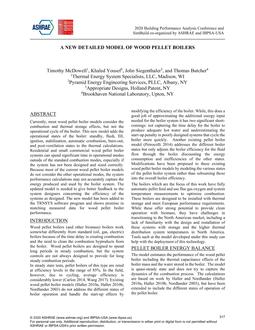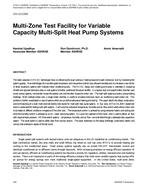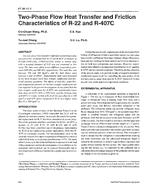Click here to purchase
This paper introduces a distributed system for building fault detection, diagnostic, and evaluation (FDDE). The design of the distributed system aims to address computation and network limitations on a common commercial building automation system (BAS). This system also aims to be adapt- able to different fault detection and fault diagnostics algo- rithms developed by other researchers. The fault evaluation aspect of the system provides quantitative impact metrics of the potential faults to the building operators. Probabilistic representations of faults and symptoms are used, and a continuous symptom severity value is developed to provide more granu- larity over the abnormal operation information. The proposed method is then tested with five fault cases simulated in Energy Plus. Results show reduced false positive rate and enhanced fault belief when using a dynamic Bayesian network (DBN) over the conventional event-based Bayesian network (BN) used in fault diagnostics. Fault evaluation based on continuous symptom severity provides a reasonable quantitative reference for building operators to make informed decisions. This system will be further expanded with more fault detection algorithms and tested inside real buildings, and a framework will be madeavailable for other researchers to develop upon.
Citation: 2018 Annual Conference, Houston, TX, Technical Papers
Product Details
- Published:
- 2018
- Number of Pages:
- 15
- Units of Measure:
- Dual
- File Size:
- 1 file , 960 KB
- Product Code(s):
- D-HO-18-005


